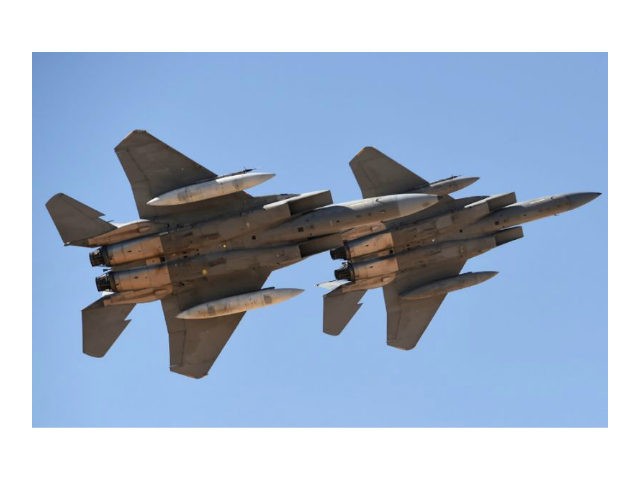The commander of United States Central Command said Tuesday that the U.S. was authorized to provide military support to Saudi Arabia in its war against Houthi rebels in Yemen under a bilateral agreement governing logistics sales.
Army Gen. Joseph Votel told the House Armed Services Committee that the U.S. has been providing refueling support to Saudi aircraft engaged in the war under an Acquisition Cross-Servicing Agreement.
“The provision of fuel to — to Saudi aircraft is — is provided for under the acquisition cross-servicing agreement that we have in place with — with Saudi Arabia. And so that provides us the authority to provide that support to them,” he said.
Votel also said arms sales to Saudi Arabia go through the foreign military sales and foreign military funding process managed by the State Department.
Acquisition and Cross-Service Agreements (ACSAs) are agreements between the U.S. and a foreign government or organization governing the transfer of logistics support, supplies, and services directly.
Some legal experts say ACSAs are not meant to authorize participation in a war and that if the U.S. is to participate in the war, it necessitates Congress passing an authorization for the use of military force (AUMF). A new authorization for the use of military force has not been passed since 2002, when Congress authorized the U.S. war in Iraq. Prior to that, Congress voted on a 2001 AUMF to authorize the U.S. war in Afghanistan.
The U.S. began military support to Saudi Arabia’s military coalition in 2015 to assist the Yemeni government against a hostile Houthi rebel takeover of Sanaa, Yemen’s capital. The Pentagon set up a joint planning and operations cell to help the Saudi military target rebels and avoid civilian casualties.
The State Department also sped up arms deliveries to Saudi Arabia. In July 2015, the Pentagon approved a $5.4 billion sale for 600 Patriot missiles and a $500 million deal for more than a million rounds of ammunition, hand grenades, and other items, according to Human Rights Watch. According to the Congressional Research Service, between May and September 2015 alone, the U.S. sold $7.8 billion worth of weapons to the Saudis.
The U.S. continued major arms sales through 2016, but towards the end of his presidency, former President Obama halted one sale and decreased intelligence support. The Trump administration has continued the support to Saudi Arabia, approving a $110 billion arms sales last year. But in December, the administration asked Saudi Arabia to temper its actions in Yemen.
U.S. officials have also argued that intervention in Saudi Arabia is necessary to curb growing Iranian influence in Yemen, which intensifies the regional struggle between Saudi Arabia and Iran in the Middle East. Iran has supplied the Houthi rebels with ballistic missiles to target Saudi Arabia. Iran is also suspected to have supplied Houthi rebels with missiles targeting U.S. ships off the coast of Yemen.
But members of Congress — mostly Democrat, but some Republicans — have long-argued that Saudi Arabia has ignored U.S. advice on avoiding civilian casualties and have sought restrictions on U.S. arms sales to the country. A bipartisan group of lawmakers in the House have also been pushing for the halt of U.S. assistance in Yemen.
The United Nations estimated in 2017 that more than 10,000 civilians have been killed and an additional 40,000 wounded. In addition, the Saudi-led coalition has imposed a naval blockade on Yemen that has intensified the humanitarian crisis.
Congressional opposition will likely face resistance from Pentagon leadership, among Iran-hawks and those who favor strong support for Saudi Arabia in Congress and the White House. Defense Secretary Jim Mattis is a known Iran-hawk but has also expressed concern with rising civilian deaths in Yemen.

COMMENTS
Please let us know if you're having issues with commenting.